

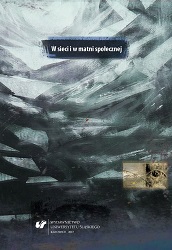
Keywords: cooperation; human capital; social capital; bonds; integration; networking; learning region
The complex nature of the processes which are meant to transform industrial regions into regions of knowledge constitutes one of the most interesting topics for analysis, observation and research in both academic and practical terms. Currently, research is being conducted in order to describe these phenomena, taking into account the relationships and networks which emerge in the process. At the same time, the researchers emphasize the interdisciplinary character of this research. Thus, the article attempts to describe the nature and character of the emerging networks of relationships between the designated types of stakeholders in the industrial region. The study has been based on the research conducted in the Silesian Voivodeship in 2010–2012. Particular attention has been devoted to notions such as networking, social networks, learning region, integration, human capital, social capital.
More...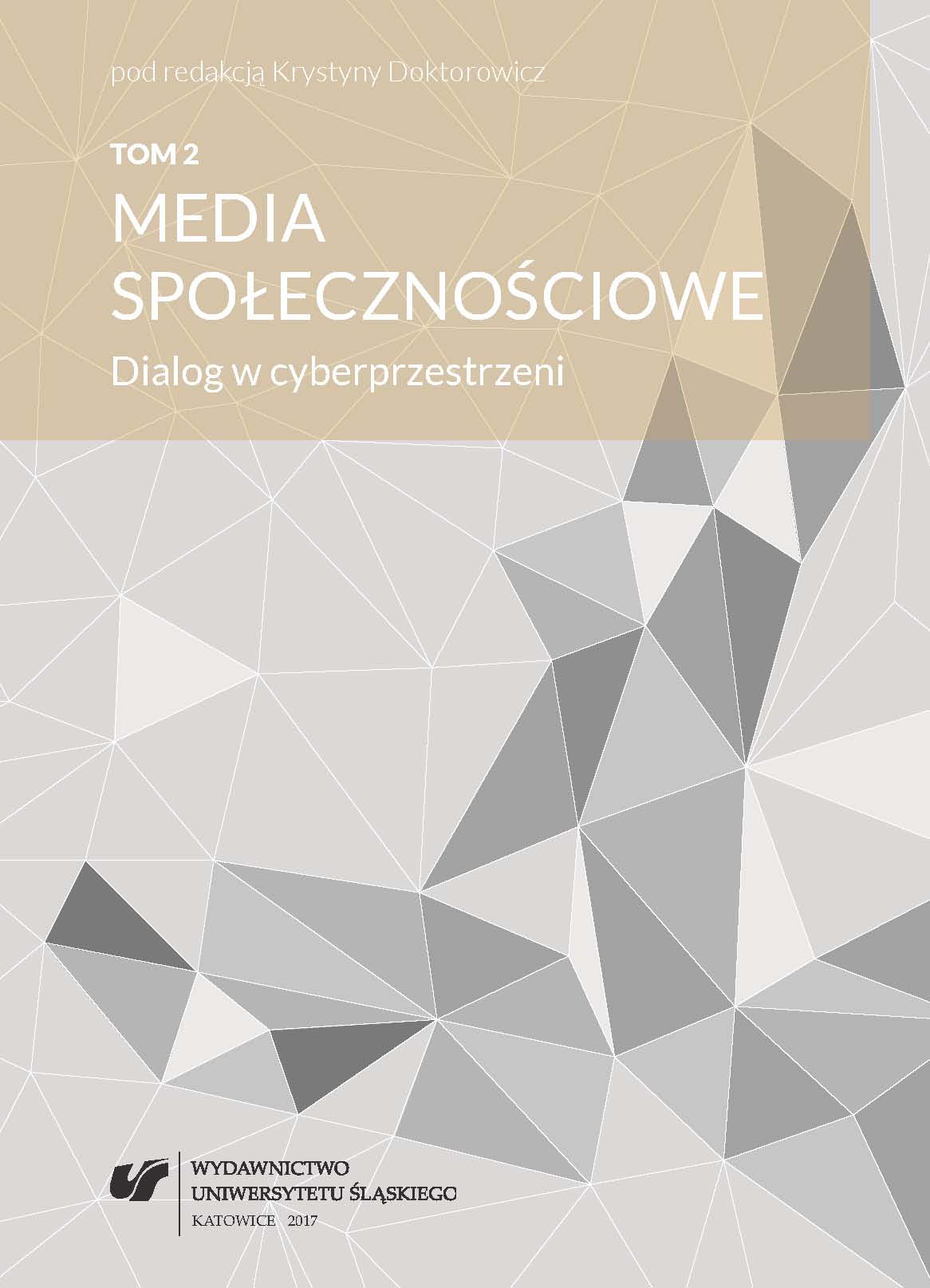
The deliberations included in the text refer to the possibility of the use of social media in promotional film and television series campaigns. The author draws attention to the phenomenon of the more and more frequent process of including the Internet users in processes of promotion. She introduces the ways of activating audiences used for this purpose by the producers and distributors through their activities in social media such as Facebook, YouTube, Second Life. Various ways to use the potential of this type of media are discussed on the basis of examples of specific films and TV series, producers and distributors of which embraced customized promotional solutions. The article also explains the importance of the implementation of viral marketing and crowdfunding in promotional campaigns. The author indicates benefits but also problems associated with involving the audience in future promotional activities by means of the network.
More...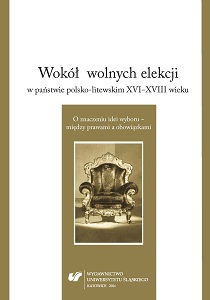

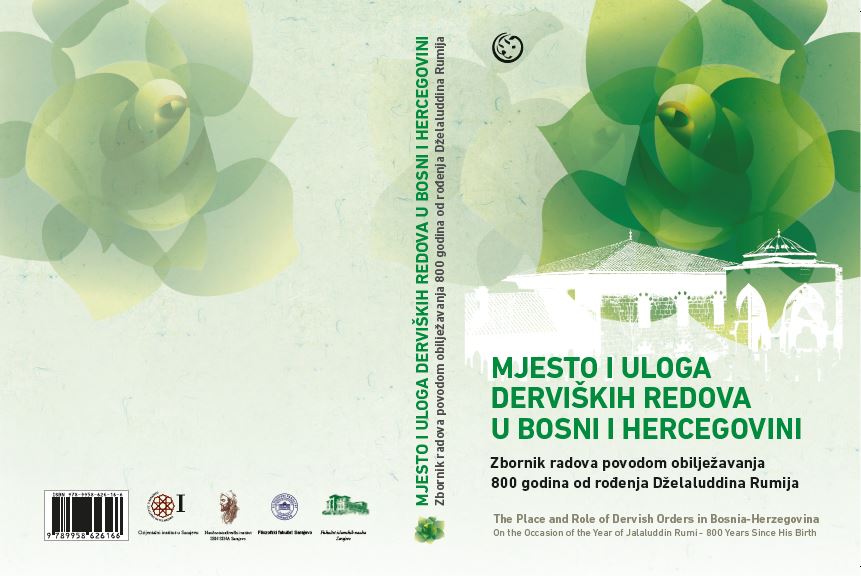
Keywords: Rumi’s metaphysical and ontological status of Love; philosophical inter-cultural dialogue; U-turned Islam;
The essential awareness of the spiritual state of today’s world, and of the question of terrorism, reflects the social pathologies of the modern world− a pathology that is accustoming people to the presence of violence as something quite normal and logical, and where they are all too familiar with danger and the presence of death. So, there is really wide need for studies which will stimulate mutual understanding, inter-faith dialogue and multicultural encounters. Hazrat Mawlana, who is one of the greatest spiritual and literary figures of all time, who advocated unlimited tolerance,and for whom love is the most significant conceptual component in a manner transcending all national, cultural and civilizational bounderies, is undoubtedly the most suitable figure for this task.
More...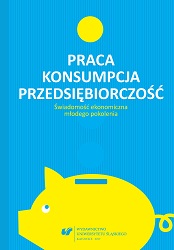
The article focuses on the changes taking place in the relationship between thelabor market and widely understood academic education in the era of economic neoliberalism.Particular emphasis was placed on the presention of the issues related to the opportunities of career development and the quality of work of young people leaving the Warsaw University of Life Sciences (SGGW). Graduates are increasingly more likely to be exposed to precarious work (low-paid, temporary, below their qualifications). The paper is based on an analysis of data obtained from the academic office of the University of Life Sciences Careers Service, which monitors the career paths of the graduates. The authors, using the conceptual framework proposed by Guy Standing and based on the study, “The fate of the Warsaw University of Life Sciences (SGGW) graduates” are trying to look closer at the employment status of graduates.
More...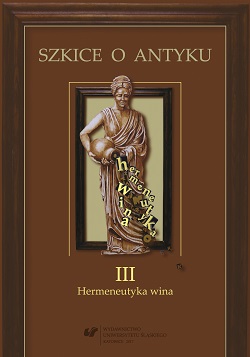
Keywords: wine; Dionysus; Orpheus; Orphics; vines
The aim of this article is to investigate the attitude of Orphics to wine in the times of Early Roman Empire (1st century BC–3rd century AD). The problem is considered from three perspectives: wine and vines as a motif in Orphic mythology, in particular in connection with the story of Dionysus (i.e., his birth and death), whom the Orphics worshipped; wine as a drink (i.e., obligation or prohibition regarding its consumption); and wine in the context of faith Orpheus’ disciples shared in life after death.
More...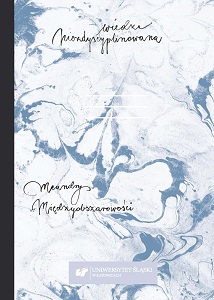
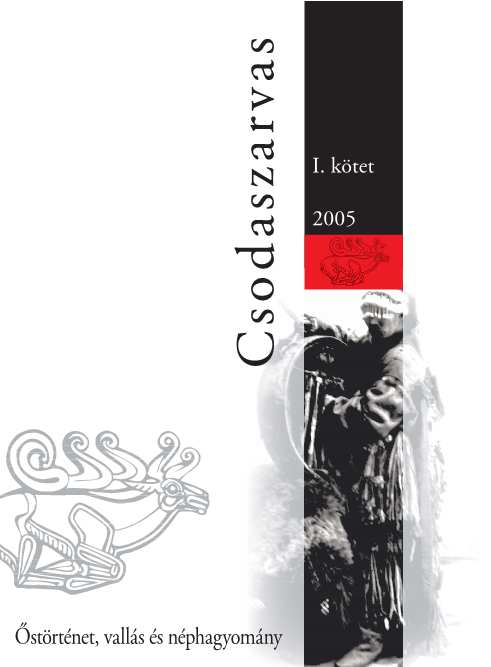
Keywords: shamanism;
More...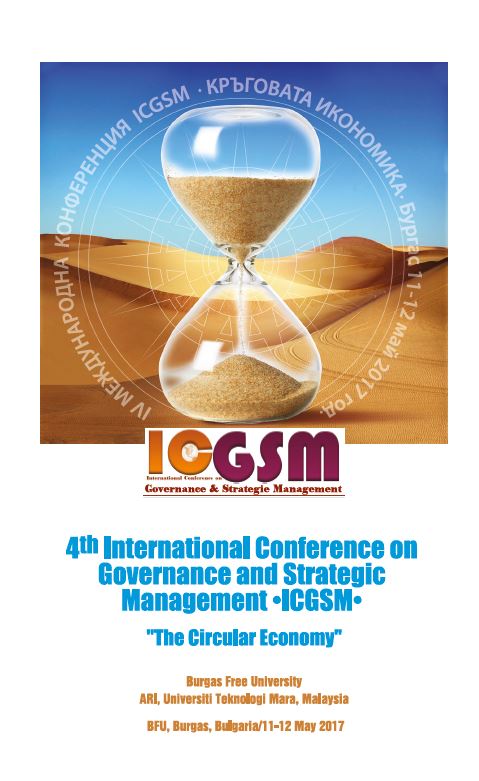
Keywords: Straregic analysis; SWOT
Straregic analysis studies general and competitive environment, who gives a SWOT matrix which allows make strategic decisions based on relationship between Treats, Opportunities and Strong, Weaknesses. But these decisions making process could promote investments with long term return, without considering future of this long term in treats and opportunities. This work try to associate the environment classic analysis with prospective analysis, were different assumptions of relationship between variables set up several scenarios who promote a set of new dynamic strategies.
More...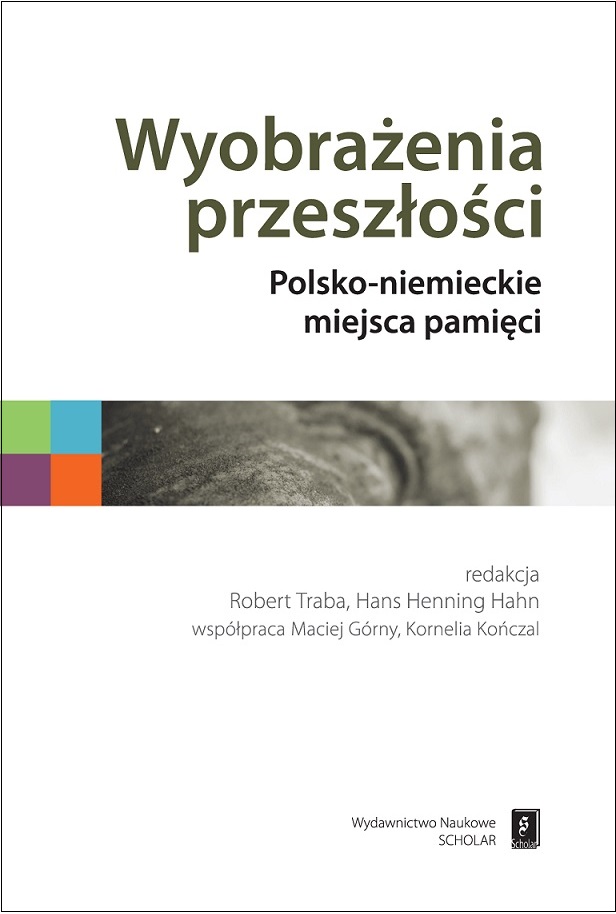

Keywords: Public Administration; Pilot Project; Public Organizations;
Administratat publike kombëtare në ditët e sotme, janë të detyruara për t'iu përshtatur ndryshimeve shoqërore në të gjithë botën (Pollitt, 2004). Në BE, Strategjia e Lisbonës, është një nga stimujt kryesorë për të luftuar dhe zhvilluar administratën publike (AP), operacionet bazuar në përqëndrimin tek konsumatorët dhe të gjithë aktorët e tjerë. BE, nuk ka asnjë mjet të paraparë për zhvillimin e cilësisë në AP, por KE rekomandon veçanërisht vetëvlerësimin dhe standardet e jashtme, si dhe përmirësime në bazë të Vlerësimit Kornizë, të Përbashkët (CAF), për organizatat e sektorit publik në kontekstin e reformave e përgjithshme të AP. Qeveria e Republikës së Sllovenisë, ka konstatuar në mandatin 2004-2008, se qëllimet kryesore të saj janë për ta bërë administratën përdorues të orientuar, funksionimin e saj të hapur dhe transparent, si dhe për të siguruar efikasitet dhe cilësi në të gjitha nivelet. Kjo e fundit në mënyrë specifike, përfshin krijimin e një sistemi të cilësisë brenda AP - dhe është edhe objektivi i Strategjisë për Zhvillim e Sllovenisë, deri më 2013.
More...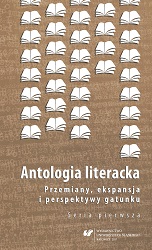
Keywords: Antologia poezji polskiej na obczyźnie 1939–1999; Bogdan Czaykowski; Polish emigration poetry; reception; anthology
The article presents the genesis, structure and reception of one of the most interesting anthologies of poetry published after 1989. The author looks back at the attempts at construing similar anthologies of Polish emigration poetry, made already during World War 2, then in the following decades of development of Polish literature abroad. He discusses the early attempts at creating the anthology by Bogdan Czaykowski, then the concept, structure and criteria used to choose the pieces included in his 2002 anthology of Polish poetic texts written in a foreign land between 1939 and 1999 (Antologia poezji polskiej na obczyźnie 1939–1999). The article also discusses the critical reception of the volume and provides an overview of the most important arguments it raised. The conclusion reflects on the diversity of opinions on the anthology, pointing to the controversies it brought as well as to its incontestable merits. Those factors precisely contributed to the anthology, so long awaited by the emigration circles, falling into almost complete oblivion within fifteen years’ time.
More...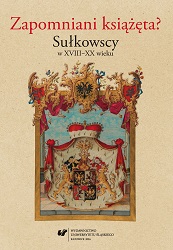
The present study is devoted to the heraldic aspects of the social career of a Polish nobleman, Aleksander Józef Sułkowski (1695–1762). For his considerable contribution attainment of the Polish crown Friedrich August II ensured that in 1733 an imperial title of a count was conferred to Sułkowski by Friedrich August II and that the former’s family coat of arms was promoted. Sułkowski’s further advancement in titular ranks was realised in the environment of the Habsburg monarchy where at the beginning of 1752 he purchased the free Upper Silesian estate of Bielsko. Owing to the considerable assistance of the seller, Friedrich Wilhelm, the count of Haugwitz, the head of the directorium in publicis et cameralibus, and the marked support of the Viennese court, which looked after its own foreign policy interests, he was promoted soon after the purchase of Bielsko to the rank of a Silesian prince. At the same time Sułkowski was promoted by the Bohemian queen, Maria Theresa, to the rank of a Bohemian prince and he received an analogous imperial title from her husband, emperor Franz I Stefan. Both instances of promotion referred exclusively to Sułkowski and his primogenital line of inheritance, whose representatives constituted contemporary owners of Bielsko. In 1752 he managed to experience the promotion of Bielsko to the status of a principality, which ensured him and his primogenital descendants the status of a Silesian prince. The Bohemian privilegium further extended the princely title to all legal descendants of Sułkowski, similarly as in the case of the imperial privilegium, which was issued at the same time. Without doubt Sułkowski’s social advancement was fundamentally motivated by the pursuit of the highest social position that could be attained in the contemporary aristocratic community of the Habsburg monarchy. The purpose of this was to ensure the potential advancement of Sułkowski’s eldest son, August Kazimierz, in the highest diplomatic and bureaucratic spheres of the Habsburgs. The conferring of a Bohemian and imperial princely title is accounted for by the content of the 1747 agreement between the Bohemian queen, Maria Theresa and emperor Franz I Stefan about the mutual conferring of Bohemian and imperial knighthood to those people who were Bohemian and imperial subjects at the same time. Although Sułkowski endeavoured primarily to gain Bohemian knighthood for the sake of the advancement of the Bielsko estate, the ensuring of such advancement entailed the analogous attainment of an imperial title. The legal and formal framework of Sułkowski’s imperial and Bohemian titular advancement manifested itself very clearly in the change of his family coat of arms. Its foundation was the Sulima coat of arms, which was an imperial count’s privilege of the year 1733 extended by the count’s coronet in the centre. The black eagle was additionally wrapped by a crancelin, which may be unequivocally interpreted as a derivative of an emblem of a Saxon principality. At least since 1734 Sułkowski began to publicly use a variant of the coat of arms with the complete Saxon emblem. Both may be seen as a clear expression of Karl VI’s as well as of Kurfürst Friedrich Augustus II’s grace. Sułkowski’s coat of arms underwent further radical changes on the occasion of the princely advancement of 1752. The original blazon now had a new background divided into four quarters, whose figures symbolically referred to the issuers of both princely acts – the Bohemian queen and the emperor. Again, the point was about the derivative of landed emblems, which could be used only by landowners. At the top of the coat of arms there was princely headgear, coupled with a traditional princely mantle. Since 1754 this princely blazon was used by all of A. J. Sułkowski’s descendants, whereas the variant with the Saxon emblem on the eagle’s breast in the centre continued to be used. The princely title of the Bohemian privilegium of 1754 was no longer represented in any way in the heraldic composition of Sułkowski’s coat of arms. The princely advancement of Sułkowski’s coat of arms was relatively rare in the context of the heraldry of new Bohemian and imperial knights, for as the princely title was conferred, the estate coat of arms was not promoted, but only peculiarly corrected or improved. Sułkowski’s princely coat of arms does not contain references to the the potential symbolism of Bielsko, the Piast past of this dominion and the municipal symbolism of the city of Bielsko as its capital. The latter aspect was not a commonoccurrence during the conferring of knighthood in the Bohemian lands or in the Empire atall. The double transformation of Sułkowski’s coat of arms and the fact that it is publicallydisplayed reminds us to this day about the extraordinary social position which Sułkowskiattained during his lifetime – first at the Dresden and then at the Viennese court in the contemporary and in the broader framework of the Central European aristocratic community.
More...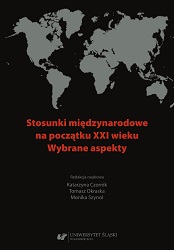
Keywords: foreign policy; Russo-Georgian War; security
In his article, the author will focus on the analysis of Georgian foreign policy after the war in 2008. Especially on relations with NATO and the European Union. What will offer the background for the article will be the situation in Georgia since 1991, i.e. the moment when the country gained its independence.An analysis of the current literature on the subject allows us to draw the conclusion that thepresented pro-Western tendencies are certainly a result of many interrelated factors. Georgia is currently struggling with numerous problems, inter alia, high unemployment, weak currency and poor territorial integrity. In recent months, Georgian politics seems to have turned away from the Euro-Atlantic idea because of the lack of faith in the real possibility of joining the Alliance in the years ahead. On the other hand, the relations between Georgia and the European Union are strengthening, which confirms, for example, the signing of the 2014 Association Agreement. At present, the ruling political group in Georgia – the Georgian Dream – is also striving to warm relations with the Russian Federation. The paper will be based on the research carried out by the aforementioned experts and the author’s own studies.
More...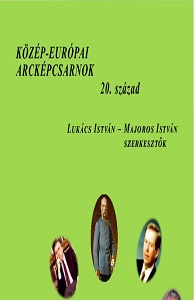
Keywords: Gyula Rézler; Hungarian labor sociology; historical objectivity; labor stu-dies; working–class communities; survey; ethnography;
In the 20th century Central European history it is unfortunately not sur-prising if a scholar is forced into exile and he or she can complete an aca-demic career in a country far away from the place where the research has been started. Gyula Rézler was relatively fortunate in this respect because after the change of regimes he was invited to Hungarian universities, later he even resettled in Hungary and as a belated recognition, he was elect-ed a member of the Hungarian Academy of Sciences. His most important achievement in Hungarian sociology is that he has laid the foundation of the scientific methodology of the Hungarian labor history and he elabo-rated the methods which the researchers use even today. He conducted this research still in Hungary, further in a period when labor history was mistaken for „Communism”, and any form of the political left was con-nected with the short-lived Hungarian People’ Republic. A considerable political and human courage and commitment was needed for a young man of „bourgeois” descent to choose the formation of the Hungarian working class for his topic of dissertation and continue the research with the mapping of the work and life conditions of the contemporary work-ers. He also elaborated a method for data collection, which served as a model for later factory case studies. Rézler was a left-wing thinker but he was never a Communist; as his study on the Soviet peasantry demon-strates, although he recognized certain social achievements of the Soviet regime, he clearly recognized the social and human consequences of the dictatorship and the omnipotent state violence and control. With the hardening of the Hungarian Stalinist dictatorship led by Mátyás Rákosi Rézler had to leave the country, and he continued his scholarly career in the United States. The article introduces his life, his labor research, his political and academic thinking and his impact on the Hungarian labor so-ciology. His results in the establishment of the Hungarian labor history and his commitment to academic objectivity remain to be remarkable achievements even if this ethos could not be reconciled with the social and academic climate of the postwar era in Central Europe.
More...
Keywords: history of Czechoslovakia; Central Europe; Edward Beneš; Hungary; Ma-saryk; Charles University; emmigration;
For Hungary, state and nation, among those non–Hungarians who ex-erted the greatest influence on its history of the 20th century, Edward Benes ranks among the most influential of the Central European politi-cians. The important stages of his career often intersected the path of Hungary’s history. In this essay we survey the career of Edward Beneš particularly his foreign policy from his birth to his death.
More...
Keywords: agrarian movement; Central Europe; fedaration; parliament; prime minister;
Dr. Milan Hodža (1878–1944) was the first prime minister of Czechoslovakia with Slovak origin (1935–1938), but he was active in the public life from the end of 19th century. Before the first world war he was the member of Hungarian parliament and the unofficial advisor of the Franz Ferdinand (Belveder Circle). Hodža this time established the Slovak agrarian democratic political movement and after 1919 he was the deputy president of the Czechoslovak Agrarian Party, which was the most important civic party in the interwar period. Hodža always supported the idea of the cooperation of the Central European countries. Especially important was this idea for him during his emigration under second world war. Hodža did not agree with the pro-Soviet orientation of emigrant president Edvard Beneš and they had many conflicts. Beneš was the winner of this struggle and Hodža emigrated to USA. There he wrote the main publication of his life – the concept of the fedaration in the Central Europe.
More...
Keywords: Austro-Hungarian Monarchy; Charles I; World War I; foreign policy;
From December 1916 to April 1918, Count Ottokar Czernin was the Common Foreign Minister of the Austro-Hungarian Monarchy. He was the leader of peace speeking foreigne policy of the Monarchy.
More...